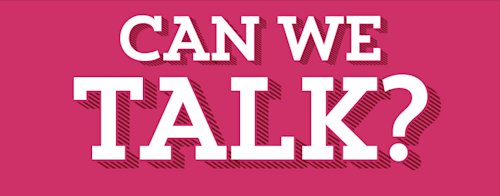This year's Dying Matters Awareness Week put the importance of talking about 'dying, death and bereavement' firmly on the national agenda.
During May, the group encouraged the public to have a 'Big Conversation' with their family and friends about what they want for the end of their lives and how they can plan for it. The campaign highlighted how people find it difficult to talk about death and dying, and offered tips on how to improve the end-of-life experience for themselves and their loved ones.
As a big supporter of Dying Matters Awareness Week, Golden Charter took the opportunity to create an infographic that looks at why people find it so difficult to talk about death, and why it is more important than ever to have that 'Big Conversation'.
So... can we talk?
Death is still a huge taboo for many British people. Surveys show that 83% of the UK population think that their fellow citizens are uncomfortable talking about death, and almost as many admit they have never spoken to anyone else about their own death. More than half of British people with a partner don't know the end-of-life wishes of their significant other.
It might seem strange that people find it so difficult to talk to each other about death. After all, it's the one thing that every single one of us has in common. But even with almost two deaths every second worldwide and one every minute in England and Wales, people find it really hard to have 'The Big Conversation'.
The struggle to talk about death and dying shows up most starkly in people's unwillingness to plan for the end of their life. Less than one-third of people have talked about what they would like for their funeral, and only slightly more have made a Will. Less than one in 10 of us have laid out how we would like to be cared for at the end of our life and only one in five have given their wishes legal authority.
But as the Dying Matters campaign has highlighted, it is more important than ever to talk about and plan for our deaths. Our population is living longer on average than ever before -- a third of the babies being born today will live to be 100 or older. That's great news, but it means more people -- almost two-thirds -- will die from chronic illnesses that call for complex decisions around care preferences.
Speaking about your own end-of-life planning might be uncomfortable, but it can really make it easier for your loved ones when the time comes. Planning ahead can take care of inheritance and financial planning. Arranging a Power of Attorney can make sure that the people you want to make decisions on your behalf are able to do so. Funeral planning guarantees that the funeral you want for yourself is organised and paid for without putting any additional burden on your loved ones.
While most people agree that talking about dying will make it easier to explain what we want in later life, end-of-life planning is the only way to guarantee that our wishes are met. Visit www.goldencharter.co.uk for more information.
Click image to view infographic








